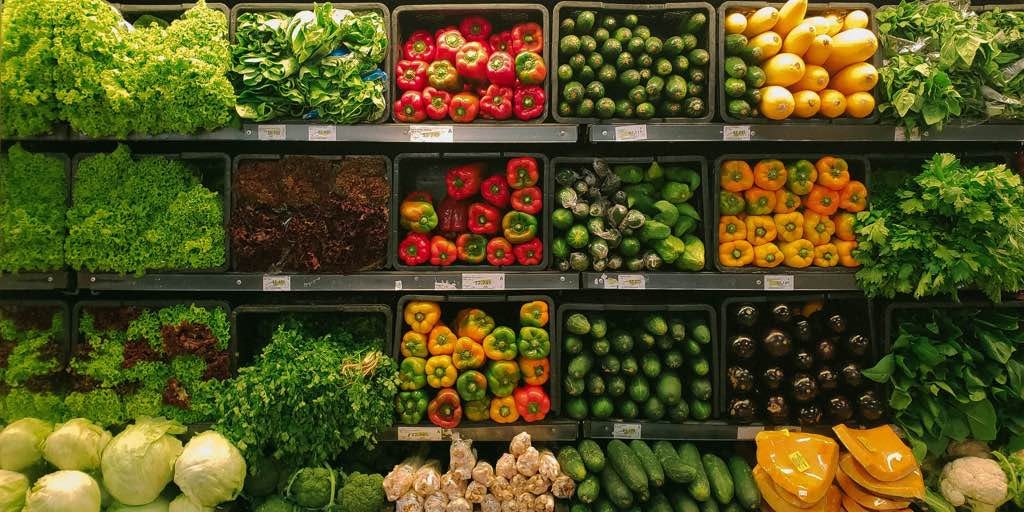A Conversation With A Cancer Nutrition Expert
Ask the Expert: Cancer and Nutrition
Note: The information presented in this article should not be substituted for professional medical advice, diagnosis or treatment. Please seek the advice of your physician or other qualified health provider with any questions you may have about a medical condition. Never disregard professional medical advice or delay in seeking it because of something you have read online.

Food is an important part of life, cancer prevention, treatment, and recovery. A healthy and balanced diet before, during, and after treatment can help you feel better and stay stronger. However, maintaining a healthy and balanced diet can be challenging, especially for cancer survivors. This is why we reached out directly to YOU to find out what questions you have about cancer and nutrition. We collected your nutrition-related questions and addressed them through a conversation with our contributing expert, Sarah Stanley, a Registered and Licensed Dietitian at the Baylor Scott and White Cancer Center in Round Rock.
LIVESTRONG: Hi Sarah, nice to meet you! On behalf of the cancer community, thank you for taking the time to answer the questions we received through social media.
Sarah: Thank you! I’m so happy to help and contribute. Nutrition is such an important issue and I’m glad the Livestrong Foundation is shining a light on it.
Livestrong: Yes, nutrition is an important topic for cancer survivors and one that can be very complex. Is there a specific approach to food and nutrition that is best for cancer survivors?
Sarah: I often think of nutrition in three phases in relation to cancer: cancer prevention, cancer treatment, and post-cancer treatment.
LIVESTRONG: That’s a great approach. Can you elaborate more on nutrition related to cancer prevention?
Sarah: When we talk about cancer prevention and the relationship to nutrition, what we want to focus on is a general healthy balanced diet that includes whole fruits and vegetables, whole grains, lean or plant-based proteins and fish. Nutrients from whole-foods sources are generally better absorbed and utilized by the body. Nutrients exist in an ecosystem, and work in synergistic ways that benefit the body more than one single nutrient alone, so it’s best to get your nutrients from whole foods sources.
LIVESTRONG: Speaking of whole foods and nutrients, one of the questions we received asked specifically about antioxidants and nutrient-rich foods. How do these play a role in cancer prevention?
Sarah: Antioxidants can play a significant role in the prevention of cancer. Antioxidants can prevent the oxidation in your cells, which in turn can lead to cancer. Including a variety of whole fruits and vegetables can be beneficial in a lot of ways that we are just scratching the surface on. For carbohydrate-rich foods, whole foods such as starchy vegetables or whole grains are the best sources of antioxidants.
LIVESTRONG: Are their specific types of fruits or vegetables cancer survivors should focus on?
Sarah: The best advice is to vary your vegetables. Think of a rainbow of vivid colors, these vegetables contain a wide array of healthy properties, such as phytonutrients, which are compounds found in plants that give them their color, taste, or smell and have shown to reduce the risk developing many chronic conditions. Each color represents a different phytonutrient and will have a different function in the body.
LIVESTRONG: Besides vegetables, are there other food sources phytonutrients can be found in?
Sarah: Herbs and spices can be beneficial as well. Not only can they help reduce the need to add salt when cooking, but also contain phytonutrients as well. For example, rosemary may help reduce proliferation of cancerous cells, reduce formation of carcinogenic compounds on charred meat, and may act as an antiviral. Garlic, ginger, or turmeric are all great spices to include in your diet as well, but as with vegetables each herb or spice will have different benefit so try to use a broad variety.
LIVESTRONG: So the secret is to really vary your vegetables, and to follow a healthy balanced diet for cancer prevention. Is there a specific diet cancer survivors should follow during treatment?
Sarah: The ideal diet during cancer treatment is a general healthy diet, including a variety of whole fruits and vegetables. But as we know, the ideal is not often reality. During treatment, it really depends on the cancer type, the response to treatment, and the treatment plan.
Livestrong: Can you elaborate on specific struggles during cancer treatment? Such as maintaining a healthy weight.
Sarah: During treatment, the goal is to keep your weight stable. Depending on the treatment plan, your protein and energy needs are going to be higher than they normally are. I recommend having a source of protein with each meal such as chicken, eggs, yogurt, or fish as your body can only really absorb and utilize so much protein at one time. Incorporate healthy fats such as avocado or nuts and seeds to help boost calories. Choose whole grains and starchy vegetables to get a good source of complex carbohydrates.
Livestrong: During treatment, we often hear about additional side effects such as nausea, constipation, and/or diarrhea. Are they any coping strategies you can recommend to ease common side effects?
Sarah: Unfortunately, managing side effects such as nausea can be difficult. My best advice is to choose foods that are gentler on the stomach, such as low fiber and low fat foods. Be sure to include sources of protein such as cottage cheese or tofu, as high-protein foods are typically not particularly appetizing if you are feeling nauseated. Ginger tea can also be a good strategy to encourage healthy digestion and manage symptoms of nausea. Choose cold or room temperature foods if the smell of food makes nausea worse.
With respect to diarrhea and constipation, it’s hard because cancer survivors tend to flip between the two and the ideal nutrition plan is opposite for both. If you’re struggling with diarrhea try to increase the amount of soluble fiber in your diet by including foods such as bananas and apple sauce. Avoid insoluble fiber foods, such as Brussels sprouts and broccoli which can make diarrhea worse. Remember to also stay hydrated as you are losing a more fluid with loose bowel movements. If you’re struggling with constipation, make sure you are staying hydrated and including fiber into your diet. However, fiber makes you feel full for longer, so if you are having problems with maintaining your weight, try eating a few prunes or dried apricots or drinking prune juice to help keep things moving.
For managing side effects, such as bowel regularity, Sarah provided a recipe that can be found at the end of the article.
LIVESTRONG: We have talked a lot about nutrition related to food. What about hydration?
Sarah: That’s a great point, especially since we just covered the topics of side effects. Overall, water is the best in terms of nutritional benefits. It’s best to avoid drinks that are high in sugar, as these can make high blood sugars from steroids given in conjunction with chemotherapy worse, and are mostly empty calorie. If you’re struggling with water not tasting right, herbal teas, fruit infused water or even sparkling water are a great solution. And don’t forget about soups or broths, these are also a good source for hydration and nutrients.
LIVESTRONG: You briefly mentioned taste as a challenge cancer survivor’s face. What advice can you offer to cancer survivors to manage taste changes during treatment?
Sarah: Taste changes can be such a struggle, especially for people who normally enjoy food. My best advice really is to keep trying different things because your taste is going to evolve during treatment. There are certain tricks you can use to help alleviate taste changes. For example, using sweet foods to counteract foods that taste bitter. Going back to protein, meat is something that may taste off or bitter for people during treatment. I suggest a citrus marinade or even a cranberry or apple sauce on top of a meat source to counteract the bitter taste change.
Livestrong: Since we are on the topic of meat sources of protein. Are there plant or non-meat sources of protein available for survivors that follow a vegan or vegetarian diet?
Sarah: Yes, there are a lot of choices of non-meat proteins. For example, eggs or tofu are healthy non-meat choices of protein. It can be difficult to follow a vegan diet and meet your protein and nutrient needs, however with a variety of non-meat protein sources out there you can absolutely enjoy a vegan or vegetarian diet.
Livestrong: It sounds like a lot of what we eat during treatment can be very beneficial to how we respond to treatment. Shifting gears to the next phase, what is your advice for cancer survivors after treatment?
Sarah: After treatment the goal is generally the same, to have a healthy balanced diet. I typically do not like to tell people that any foods are totally off-limits, because that’s not life. We are going to have special occasions like your birthday and you should have a piece of cake if you want. Of course, it is recommended to have a variety of fruits of vegetables, limited adding sugars, but don’t be afraid to eat anything. Remember moderation and a general healthy balance diet.
Livestrong: You touched on a topic many face during and after treatment. Fear or anxiety with food and nutrition. Can you offer any coping strategies related to fear and anxiety?
Sarah: It can depend a lot on the person and the diagnosis. For example, cancer survivors may have a fear of cancer reoccurrence caused by a certain food or even eating a food that is deemed “unhealthy.” Food is less about “good” or “bad” it’s more of a gray area. Certainly there are strategies, such as emotional support and talk therapy that can encourage those who have lost the sense of joy food can offer. I would encourage survivors to talk through the fear and anxiety to alleviate the sense of loss. And it is a loss, but once treatment is over regaining the sense of joy from enjoying food again can be a very powerful thing.
Livestrong: Discussing our questions from our cancer survivor community has been a great experience, thank you again! Do you have final thoughts to share?
Sarah: All I can say is take a minute to appreciate your body and the trauma it has seen you through. Appreciate the strength and resiliency it has shown. Be kind to yourself and your body. Try to nourish it with beneficial foods and enjoy life.
LIVESTRONG: Nourish our bodies and enjoy life — that is great advice. Thank you Sarah for your expertise, time, and thoughtful answers to our questions.
RECIPE FOR BOWEL REGULARITY
Mix Together:
· 1 cup applesauce
· 1 cup oat bran or unprocessed wheat bran
· 1 cup of prune juice
Take 1–2 tablespoons of this mixture each evening mixed with or followed by 6–8 ounces of water or juice. If you do not notice a change in your bowel movements within 2 weeks, slowly increase serving to 3–4 tablespoons each evening.
Store mixture in refrigerator or freezer. You can store in ice cube trays and thaw as needed.

A Conversation With A Cancer Nutrition Expert was originally published in Livestrong Voices on Medium, where people are continuing the conversation by highlighting and responding to this story.